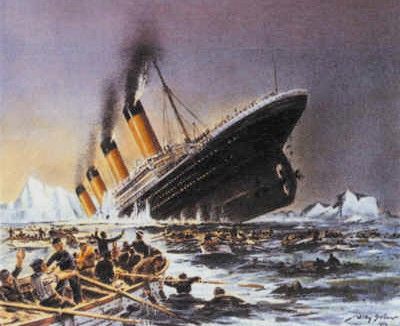Courtesy of Mark Thoma at Economist’s View.
Paul Krugman: European Crass Warfare
Germany is not being cooperative, and that could prove costly. The math is here:
European Crass Warfare, by Paul Krugman, Commentary, NY Times: So here’s the situation: the economy is facing its worst slump in decades. The usual response to an economic downturn, cutting interest rates, isn’t working. Large-scale government aid looks like the only way to end the economic nosedive.
But there’s a problem: conservative politicians, clinging to an out-of-date ideology — and, perhaps, betting (wrongly) that their constituents are relatively well positioned to ride out the storm — are standing in the way of action.
No, I’m not talking about Bob Corker, the Senator from Nissan — I mean Tennessee — and his fellow Republicans, who torpedoed last week’s attempt to buy some time for the U.S. auto industry. (Why was the plan blocked? An e-mail message circulated among Senate Republicans declared … an opportunity … to “take their first shot against organized labor.”)
I am, instead, talking about Angela Merkel, the German chancellor, and her economic officials, who have become the biggest obstacles to a much-needed European rescue plan.
The … European Union … is arguably in as much trouble as we are. … As in the United States, monetary policy — cutting interest rates in an effort to perk up the economy — is rapidly reaching its limit. That leaves, as the only way to avert the worst slump since the Great Depression, the aggressive use of fiscal policy… Right now everyone sees the need for a large, pan-European fiscal stimulus.
Everyone, that is, except the Germans. Mrs. Merkel has become Frau Nein:… she wants no part of it, telling a party meeting that “we’re not going to participate in this senseless race for billions.”
Last week Peer Steinbrück, Mrs. Merkel’s finance minister, went even further. … He accused Britain, in particular, of engaging in “crass Keynesianism.”
Germany’s leaders seem to believe that their own economy is in good shape… They’re almost certainly wrong about that. The really bad thing, however,… is preventing a common European approach to the economic crisis.
To understand the problem, think of what would happen if, say, New Jersey were to attempt to boost its economy through tax cuts or public works, without this state-level stimulus being part of a nationwide program. Clearly, much of the stimulus would “leak” away to neighboring states, so that New Jersey would end up with all of the debt while other states got many if not most of the jobs.
Individual European countries are in much the same situation. Any one government acting unilaterally faces the strong possibility that it will run up a lot of debt without creating much domestic employment.
For the European economy as a whole, however, this kind of leakage is much less of a problem: two-thirds of the average European Union member’s imports come from other European nations… This means that a coordinated stimulus effort, in which each country counts on its neighbors to match its own efforts, would offer much more bang for the euro than individual, uncoordinated efforts.
But you can’t have a coordinated European effort if Europe’s biggest economy not only refuses to go along, but heaps scorn on its neighbors’ attempts to contain the crisis.
Germany’s big Nein won’t last forever. Last week Ifo, a highly respected research institute, warned that Germany will soon be facing its worst economic crisis since the 1940s. If and when this happens, Mrs. Merkel and her ministers will surely reconsider…
But in Europe, as in the United States, the issue is time. Across the world, economies are sinking fast, while we wait for someone, anyone, to offer an effective policy response. How much damage will be done before that response finally comes?




